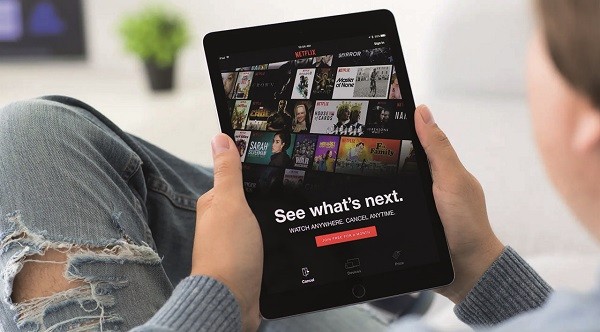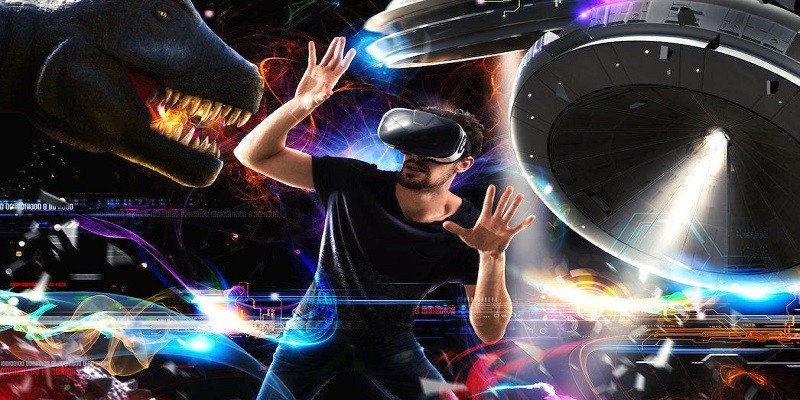The Future of Entertainment: How Technology is Changing the Way We Consume Media
Technology is revolutionizing the way we consume media, shaping the future of entertainment. With advancements in technology, our consumption habits are evolving rapidly.
Table of Contents
- The Evolution Of Entertainment
- Streaming Services Revolution
- Virtual And Augmented Reality
- Social Media And Influencer Culture
- Frequently Asked Questions
- How Is Technology Shaping The Entertainment Industry?
- What Are Some Examples Of Technological Advancements In Entertainment?
- In What Ways Do Consumers Benefit From Technological Innovations In Media?
- How Has The Integration Of Technology Impacted Traditional Entertainment Formats?
- What Can We Expect In The Future Of Entertainment With Ongoing Technological Advancements?
- Conclusion
The Evolution Of Entertainment
Entertainment has undergone a remarkable evolution, shaped by the rapid advancements in technology. From traditional mediums such as radio and television to the modern era of streaming services and virtual reality, the way we consume media has transformed dramatically.
Traditional Vs. Modern Entertainment
Traditional means of entertainment encompassed limited options such as terrestrial television and radio broadcasts. In contrast, modern entertainment embraces a plethora of options including streaming services, virtual reality, and interactive gaming.
Impact Of Technology On Entertainment
The role of technology in entertainment has been revolutionary, giving rise to convenient access, personalized content, and immersive experiences. It has empowered individuals to curate their own viewing experiences and enabled creators to explore innovative storytelling methods.

Streaming Services Revolution
The rise of streaming services has revolutionized the entertainment industry. Technology is reshaping how we consume media, offering a convenient and personalized experience for audiences worldwide. This shift signifies a transformation in entertainment consumption habits that is here to stay.
Original Content And Production
The rise of streaming services has revolutionized the way we consume entertainment. Gone are the days of waiting for a specific time slot on television or purchasing physical copies of movies and albums. With the advent of streaming platforms like Netflix, Amazon Prime Video, and Spotify, we now have instant access to a vast library of content, available at our fingertips.
Rise of Subscription Services: Streaming services have seen unprecedented growth over the past few years. With their affordable monthly subscription plans and diverse range of content, they have become the preferred choice for users seeking convenience and variety. No longer do people have to rely on cable or satellite TV subscriptions to watch their favorite shows or movies. Instead, they can simply stream them on their smart TVs, laptops, or even mobile devices, anytime and anywhere.
Original Content and Production: One of the key factors contributing to the success of streaming services is their focus on creating original content. In order to attract and retain subscribers, platforms like Netflix and Amazon Prime Video have been investing heavily in producing high-quality, exclusive shows and movies. By doing so, they have not only differentiated themselves from traditional media outlets but also created a dedicated fan base. This shift towards original content has given rise to a new wave of creativity, allowing independent filmmakers and artists to showcase their work to a global audience.
In addition to original content, streaming platforms are also offering users the option to stream live events, such as concerts and sports matches. This has further expanded the scope of entertainment available through streaming services, making them a one-stop destination for all types of media consumption.
With the rise of subscription services and the focus on original content and production, the future of entertainment seems to be heading towards an increasingly personalized and on-demand experience. As technology continues to advance, we can expect even more innovative features and improvements in the way we consume media. So, whether it’s binge-watching the latest TV series or discovering new music, streaming services are here to stay, reshaping the way we enjoy entertainment.
Virtual And Augmented Reality
Technology has come a long way in transforming the way we consume media. From smartphones and streaming services to social media platforms, our entertainment options have expanded exponentially. However, one of the most exciting developments in the realm of entertainment is the emergence of virtual and augmented reality (VR and AR). These groundbreaking technologies have the potential to create immersive experiences and seamlessly integrate gaming and entertainment.
Immersive Experiences
VR and AR offer users a whole new level of immersion by transporting them into virtual worlds or overlaying digital elements onto the real world. With the help of headsets or even smartphone apps, users can dive into realistic 3D environments and interact with their surroundings in a way that was once only possible in science fiction.
One of the most exciting aspects of this technology is its potential to revolutionize storytelling. Imagine being able to step into the shoes of your favorite characters or explore fantastical worlds firsthand. VR and AR can transport users to distant galaxies, ancient civilizations, or even their favorite movies and TV shows. This unparalleled level of immersion opens up a whole new realm of possibilities for both creators and consumers of entertainment.
Not only can VR and AR enhance the way we consume traditional media, but they also provide opportunities for completely new forms of entertainment. From immersive virtual concerts to interactive theme park experiences, these technologies have the power to create unforgettable moments that blur the lines between fantasy and reality.
Gaming And Entertainment Integration
Another exciting aspect of the future of entertainment is the integration of VR and AR with gaming. With the rise of virtual reality gaming platforms like the Oculus Rift and HTC Vive, gamers can now fully immerse themselves in their favorite games. Whether it’s exploring ancient dungeons, piloting spaceships, or facing off against opponents in virtual arenas, VR gaming takes the gaming experience to a whole new dimension.
But VR and AR are not limited to gaming alone. These technologies can also enhance the way we consume other forms of entertainment. For example, imagine watching a movie or TV show in VR, where you can view the action from any angle, explore detailed set designs, or even interact with the characters. This level of engagement goes beyond passive viewing and enables users to become active participants in their entertainment experiences.
Overall, the future of entertainment holds immense potential with the rise of virtual and augmented reality. From immersive experiences that transport us to entirely new worlds to the integration of gaming and traditional entertainment, these technologies are revolutionizing the way we consume and engage with media. As technology continues to advance, we can expect to see even more innovative and exciting developments in the world of entertainment.
Social Media And Influencer Culture
With the rise of social media, influencer culture has transformed the way we consume media. Platforms like Instagram, YouTube, and TikTok have given individuals a powerful voice and unprecedented influence over consumer behavior and trends.
Influence On Consumer Behavior
Social media influencers have a profound impact on consumer behavior, shaping perceptions and driving purchasing decisions. The authenticity and relatability of influencers make their recommendations highly influential and persuasive to their followers.
Monetization And Marketing Strategies
Social media has revolutionized monetization and marketing strategies with influencer partnerships and sponsored content. Brands leverage influencer reach to promote their products in a more genuine and organic manner, blurring the lines between traditional advertising and personal recommendations.
Frequently Asked Questions
How Is Technology Shaping The Entertainment Industry?
Technology enhances user experiences with interactive content, personalized recommendations, and immersive storytelling elements.
What Are Some Examples Of Technological Advancements In Entertainment?
Virtual reality, streaming services, AI-driven content curation, and interactive live events are revolutionizing entertainment.
In What Ways Do Consumers Benefit From Technological Innovations In Media?
Consumers enjoy convenient access to diverse content, personalized viewing experiences, interactive engagement, and real-time updates.
How Has The Integration Of Technology Impacted Traditional Entertainment Formats?
Traditional mediums like TV and film have evolved with streaming services, social media integration, and cross-platform content distribution.
What Can We Expect In The Future Of Entertainment With Ongoing Technological Advancements?
Anticipate more interactive, personalized content experiences, augmented reality applications, and seamless integration across devices for entertainment consumption.
Conclusion
As technology continues to advance, we can expect entertainment to evolve at a rapid pace. From AI-driven content recommendations to virtual reality experiences, the future of entertainment is exciting and innovative. As consumers, we have the opportunity to embrace these changes and enjoy a more personalized and immersive media landscape.
The possibilities are endless, and the future of entertainment is bright.

